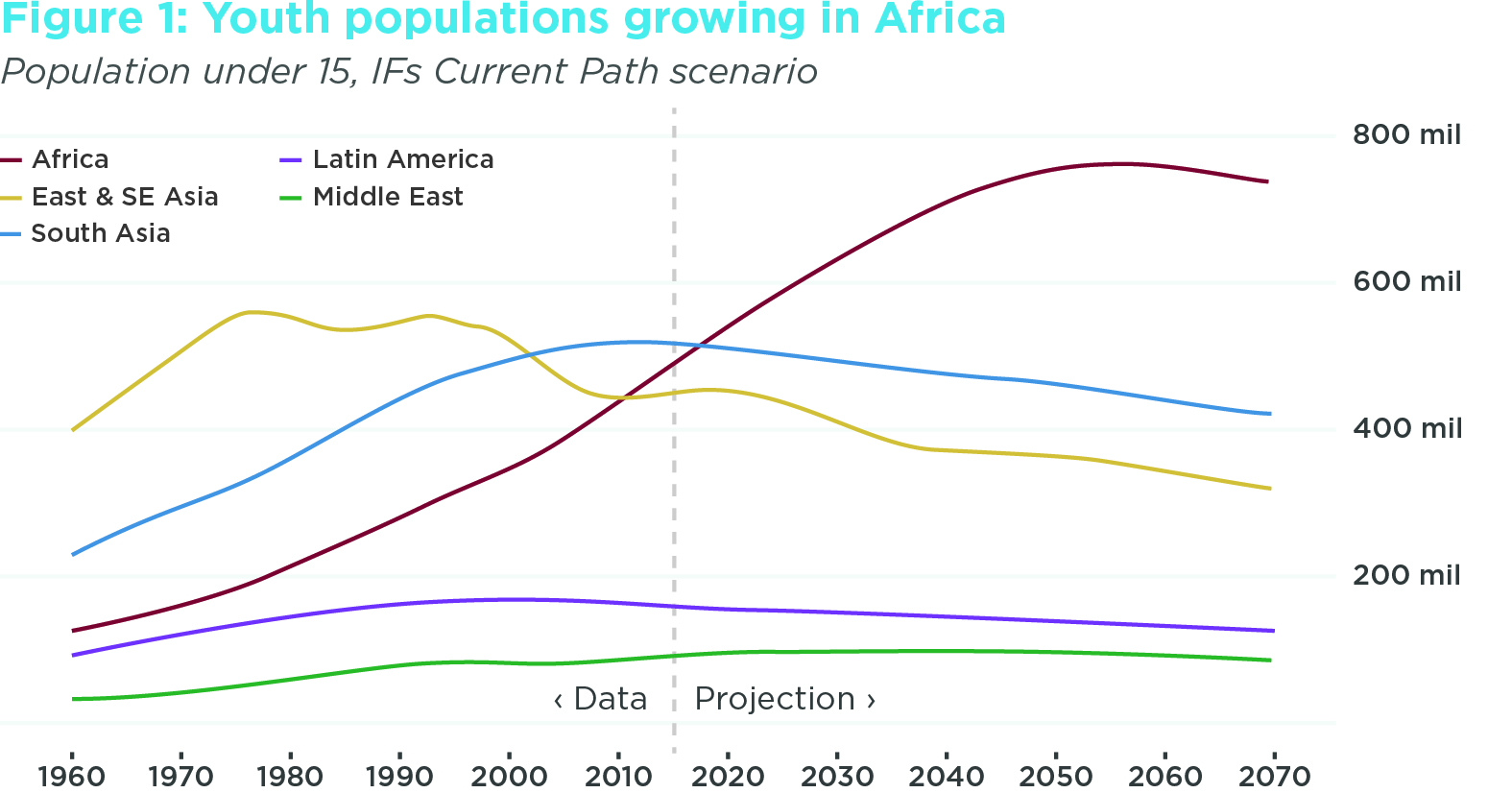A Tool for Collaborative, Long-term Development Planning

When grappling with long-term uncertainty in international development, collaboration is not just ideal—it is essential. Planning decades in advance necessitates learning from a variety of experiences across occupations, disciplines, and backgrounds. The International Futures (IFs) system is a forecasting tool that facilitates such planning and collaboration by allowing users to identify emerging trends and evaluate how interventions might impact future outcomes.
Africa collaboration
In 2018, the Pardee Center collaborated with the African Union Development Agency (AUDA) to assess the key transformations taking place across Africa over the next fifty years. Over the course of this project, teams from the Pardee Center and the African Union engaged and challenged assumptions about key trends and transitions facing Africa.
The joint report produced as a result of this collaboration, Africa’s Path to 2063: Choice in the Face of Great Transformation, reflects our collaborative efforts to inform policy and investment choices in pursuit of the African Union and United Nations’ development goals.
These types of collaborations explore potential pathways and emerging stories in international development. In partnership with AUDA, the Pardee Center discovered some of the following emerging trends in Africa:
- By 2050, roughly half of all Africans will live in urban areas (nearly 1.3 billion people).
- The leading causes of death are projected to be cardiovascular diseases and cancers in 2050—not communicable diseases like HIV/AIDS and malaria.
- The middle class is expected to grow rapidly in Africa, but poverty may persist and even intensify in some countries, such as Nigeria and the Democratic Republic of Congo.
- The average adult in Africa could have the same level of formal education (eight years) in 2050 as the average Chinese adult has today.
- By 2050, two of every five children under 15 years old will live in Africa (Figure 1).

These trends do not exist in isolation—they interact to form a narrative about how the future might unfold. To be sure, there are significant variations in development patterns across Africa and the world. The IFs Current Path scenario represents a future without significant disruptions —such as major policy shifts or global conflicts, global pandemics, or technological “game changers”—and it serves as a starting point for comparing alternative scenarios or asking “what if” questions about how the future might unfold.
What if the cost of renewable energy technologies is significantly cheaper than expected? What if Africa accelerates its progress in educational attainment and gender empowerment? What if protectionism in trade policies becomes a global norm?
Brazil collaboration
In collaboration with the United Nations Development Programme (UNDP) in Brazil, the Pardee Center hosted scenario workshops that convened UNDP and its partner organizations—representing stakeholders in policymaking and academia—to evaluate the key drivers and uncertainties surrounding Brazil’s achievement of the Sustainable Development Goals (SDGs).

Experts from across issue areas, including agriculture, health, education, and economic development, gathered to discuss the major development uncertainties facing Brazil and the interconnectedness of their fields of expertise. These workshops led to the creation of scenarios exploring poverty and inequality in Brazil and the impact that policy prioritization might have in these areas.
The IFs system served as a platform for people from diverse experiences and occupations to have a common language and understanding for how development cuts across silos or issue areas.
Exploring the future
The Pardee Center conducts research and hosts collaborative workshops for governments and organizations on strategic foresight techniques, scenario planning, and the use of IFs models to inform long-term development strategies.
The Pardee Center’s work has informed policymaking and programming with national governments, non-governmental organizations, and development agencies around the world, including the United Nations Development Programme (UNDP), the United Nations Environmental Programme (UNEP), the United States National Intelligence Council, the European Union, the African Union, the United States Agency for International Development (USAID), Water for People, Action Against Hunger, Population Services International, and many more. For further information on how the Pardee Center works to explore the future, please visit pardee.du.edu.
Collaborators
The Frederick S. Pardee Center for International Futures is an academic research center that builds data and tools to analyze our complex world and the long-term dynamics of change in human, social, and natural systems.
The United Nations Development Programme works in about 170 countries and territories, helping to achieve the eradication of poverty, and the reduction of inequalities and exclusion.
The African Union Development Agency is the implementing arm for the African Union’s Agenda 2063 development strategy.
